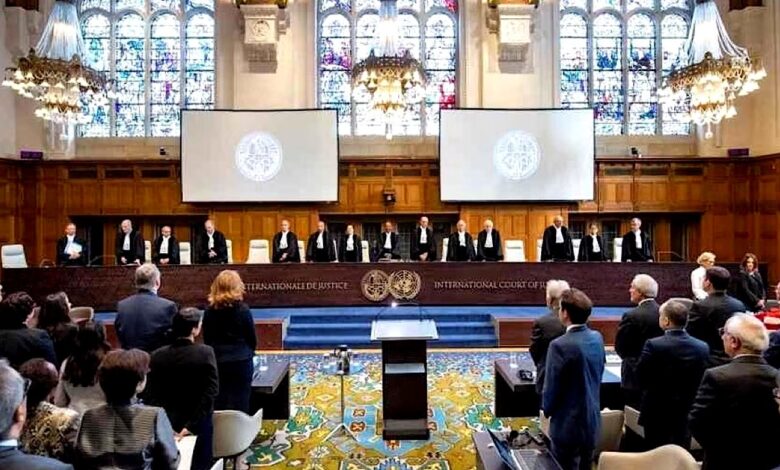The beginning of the sessions of the International Court of Justice about the occupation of the Israeli regime

| The public hearings of the International Court of Justice on the legal consequences of the occupation policies and actions of the Israeli regime in the Palestinian territories have begun. |
According to the “Quds Press” news site, these meetings were held within the framework of the request of the United Nations General Assembly to receive opinions from the Hague International Court about the effects of the occupation activities of the Israeli regime more than 75 years ago. These public meetings will continue for 6 days (March 7).
During these meetings, in addition to the African Union, the Organization of Islamic Cooperation, and the League of Arab States, the requests received by the International Court of Justice from 52 countries of the world, which is unprecedented in the history of the court, are to be dealt with.
The actions of the Zionist regime with the aim of changing the demographic composition and the status of the occupied city of Jerusalem, as well as the adoption of discriminatory laws and measures by the Israeli regime in this regard, are among the cases that are being investigated.
The judge of the International Court of Justice said at the beginning of this meeting: We will review the opinion of the United Nations General Assembly regarding the consequences of Israel’s policies in the Palestinian territories.
The issues presented to the International Court of Justice that are dealt with in these sessions are related to the case that South Africa brought against the Zionist regime regarding the regime’s non-compliance with the Convention on the Prohibition of Genocide during the war against Gaza, which resulted in the martyrdom of more than 28,000 Palestinians. And the displacement of the majority of the population of Gaza is different.
According to Quds Press, although advisory opinions issued by the International Court of Justice are non-binding, they can have significant moral and legal authority and can eventually become part of international law norms and legally binding for governments. become binding; Just as the United Nations General Assembly in December 2003 requested a legal advisory opinion on the actions of the Israeli regime, including the construction of the wall known as the “Apartheid Wall” in the West Bank, and a few months later, in July 2004, the International Court of Justice found that the construction of this wall is illegal. It is with international laws and should be stopped and the parts made should be dismantled.
These procedures provide an opportunity for the International Court of Justice to provide a more comprehensive assessment of the Israeli regime’s occupation actions, two decades after its last advisory opinion, regarding the application of international humanitarian law, human rights and international criminal law. advise the United Nations.
The International Court of Justice is the main judicial body of the United Nations and consists of 15 judges who are elected for a 9-year term by the General Assembly and the Security Council of the United Nations.
The brutal attacks of the occupying Israeli army with the support of the United States and Europe against the residents of Gaza have continued for 136 consecutive days, and the soldiers and fighters of this regime have bombed hospitals, buildings, towers and houses of Palestinians and destroyed them on top of their residents. And they prevent water, food, medicine and fuel from entering Gaza.
According to the announcement of the Palestinian authorities and international organizations, the continuous attacks of the occupying Israeli forces on Gaza have killed more than 28 thousand 980 Palestinians and injured more than 68 thousand 800 of them and displaced more than 85% of the population. The Gaza Strip is about one million and 900 thousand people.
| © | Young Journalist Club |


